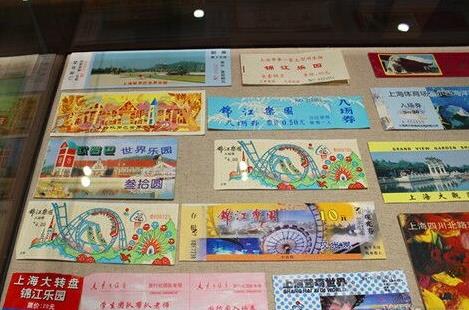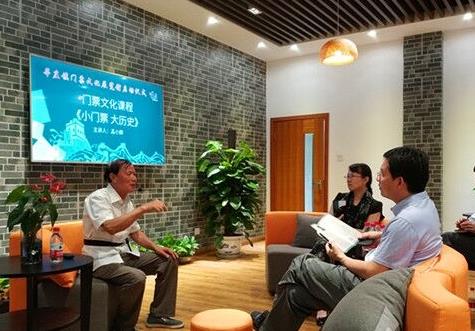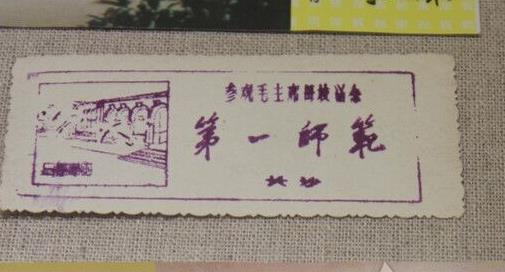Meng Xiaokang, a retired teacher, says history and culture are embedded in tickets issued to places, events and even government rationing. He has collected more than 2,000 tickets in four decades.
A current exhibit of some of his collection is now on display at Xinzhuang Community School.
“The headmistress of the community school knew about my hobby,” Meng said. “She thought it would be novel to use the tickets to trace the development of China.”

Tickets on display
Apart from teaching Shanghai dialect in the community school, Meng also tells volunteers the stories behind each ticket.
“The town published a textbook on tickets, written by Meng, two years ago,” said Li Wei, Party secretary of Xinzhuang Community School. “It has become a feature of our town. A two-month ticket exhibition last year was such a great success that we built a place to house the exhibition permanently this year.”
Take the ticket to the site of the First National Congress of the Communist Party of China as one example. Volunteers tutored by Meng tell visitors why Shanghai was chosen to host the event, the people who attended and the historical significance of the meetings.
Or take tickets to the Jinjiang Amusement Park over the years.
“The ticket price to the park went from 0.5 to 20 yuan,” said Meng. “That tells us something about economic development.”
Six volunteers from Xinzhuang High School are on hand at the ticket exhibition to guide visitors through decades of history and culture.
The exhibition is divided into three parts: “Memories of Shanghai,” “The Roots of China” and “Waters in China.” Additional themes such as “Religions in China” will be forthcoming.
“The exhibition hall has limited space,” Meng said. “So only a few hundred tickets are being displayed. We are working to expand that.”
Meng’s hobby can be traced back to his high school years.
“I had a teacher who praised an article I wrote about shikumen, the traditional Shanghai architectural style,” Meng said. “She told me to stay observant and be a generalist. That is how I came to notice the small details of life. Her advice lives with me to this day.”

Meng(left) discusses his collection at a community talk.
Indeed, Meng has developed an eclectic knowledge base — everything from watching clouds to predict weather to how to grow vegetables. He built the house where he lives, and if you ask him how many languages there are in the world, he answers immediately.
So it wasn’t surprising that Meng not only took note of tickets to places and events but never threw them away. Instead, he sorted them according to categories.
When Meng was teaching at Wenlai Secondary School, the headmaster asked his advice on how to best educate students on the importance of food.
Meng’s response was to use food rationing coupons, the tickets issued by the government allotting households a certain supply of staples.
During the 1950s, the government began issuing commodity ration coupons covering things like food, fuel and bicycles. Without coupons, people couldn’t purchase certain items.
Meng brought his tickets to school for exhibition and wrote a textbook explaining each coupon’s use.

“The students had never seen things like rice coupons, oil coupons or fish coupons,” said Meng. “They didn’t know that each household was allotted one frozen chicken during the Spring Festival. If people even wanted to buy a box of matches, they needed a ticket.”
Meng said he thinks the classes helped students appreciate the privileges they enjoy today. The classes also helped form the idea in Meng’s mind of using tickets to portray history and culture.
To that end, he has used tickets to write textbooks. Each is like a mini-encyclopedia because various tidbits are added to the description of each ticket. To write the textbooks, Meng sometimes wanders through antique markets looking for tickets to fill gaps in his collection.
“The textbooks are like comic books,” said Meng. “I explain the history and story behind each ticket. One ticket, one story. If, for example, I want to teach students about the rivers of China, I use tickets from domestic tourist attractions related to waterways.”
Culture of Tickets Exhibition
Date: Monday-Friday, 9-11am, 1:30-4:30pm
Address: 128 Longming Rd
龙茗路128号
